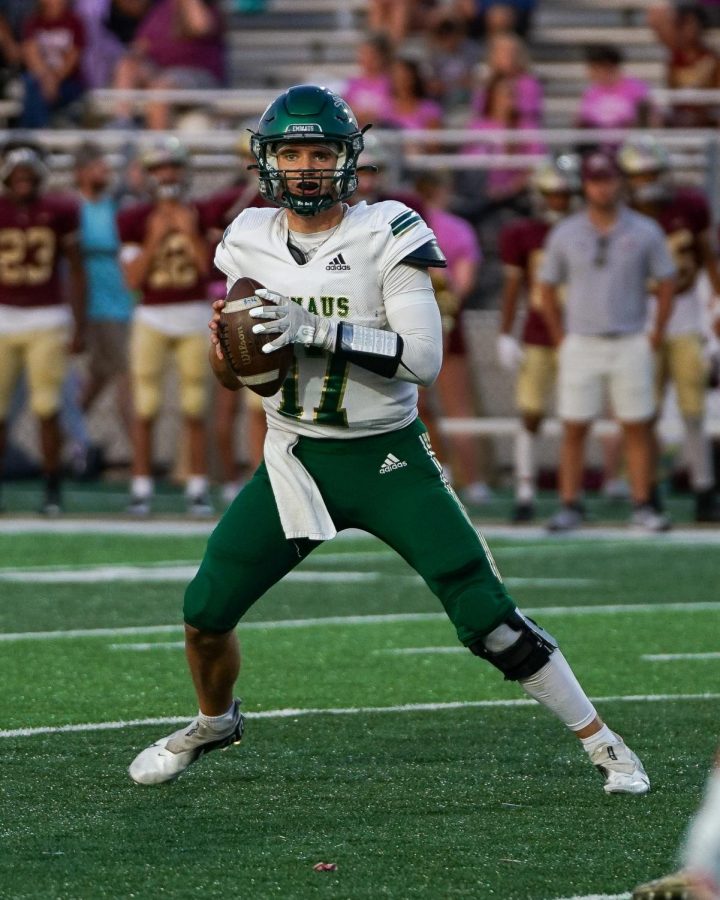Fotta returns to field after ACL tear
Emmaus quarterback Jake Fotta throws the ball during the football game against Whitehall on Sept. 9. The Hornets defeated the Zephyrs with a score of 27-19. Photos by Alice Adams.
October 20, 2022
This previously ran in our September 2022 issue.
Jake Fotta was set to have a promising 2021 season as the starting quarterback. It was his junior year and he was already a veteran, playing in all six games the previous season. That same season he threw over 1,000 yards, landing himself a spot on the banner hanging on the gymnasium wall. He was excited and ready to compete. Then, what seemed to be a minor fall at a heat acclimation practice in August changed things for the worst.
An athlete’s worst fear had come true. Fotta had torn his ACL. The ACL (anterior cruciate ligament) is found in the knee and helps stabilize the knee joint. Tearing or stretching the small ligament may seem like a minor inconvenience, but most ACL injuries require surgery and have a six to nine month recovery period, putting Fotta out for the entirety of the 2021 season.
“In the beginning, I wasn’t really sure what to do because I was thinking to myself something like this couldn’t happen to me,” Fotta said.
Due to the severity of his injury, Fotta was sent into surgery soon after it occured and then straight into physical therapy.
“The first four to five months was formal therapy. I would have to go in and see different doctors and specialists. After that, it was just up to me. I was doing my own stuff in the weight room, and just working on my own,” Fotta said.
While the physical aspect of a season-ending injury is extreme, Fotta came to realize that the mental aspect is much harder, and he began to find his support system in recovery.
“My coaches, family, friends, and my friend’s dad really got me through this,” Fotta said.
He grew stronger in another category: his faith. He accounted for a good portion of his recovery by looking up to God.
“I believe in God, so faith really helped me through it,” Fotta said. “I had friends that would send me verses and other things relating to that, and I believe that really helped.”
Last spring, Fotta was ready to play football again.
“It was over the spring, and I began getting back onto the field during seven-on-sevens and conditioning. I was excited,” Fotta said.
Though he was physically cleared by his doctors and specialists, Fotta still felt like everything was a little shaky, both mentally and physically after his seven-month absence.
“My head was, like, spinning and everything was just moving too fast,” Fotta said. “I don’t think my knee is back to the level it was. There’s no problem with it or anything, but I know I’m not completely there yet.”
Regardless of Fotta’s doubts, his statistics in his previous four games say otherwise. In his most notable game against Whitehall, he completed 12 out of 14 passes for 247 passing yards. In the other three games, he added another 266 yards to his resume. Fotta is leading the offense with seven touchdowns throughout the first four games while only throwing one interception, proving he has what it takes.
Fotta’s success has been seen by the public too; he was named Morning Call Athlete of the Week for his outstanding statistics at Whitehall. As for Fotta, he understands the greatness he and the Emmaus football team have achieved in their first four games.
“I think we’re doing great so far. I like to look at it in a positive way. And as for myself, too, I just want to keep doing what I’m doing,” Fotta said.











